Do you know why diets don’t work? Neither do I. Diets don’t fail;
dieters do, so therefore if you don’t like failure, for heaven’s sake,
don’t go on a diet.
I credit my mother for my long and tiresome history with dieting, as it was she who would always start with the latest diet book. After she had left this world and I had to close up her apartment, there on the night table, right beside her bed was Dr. Phil’s Life Strategies and The Ultimate Weight Loss. She would rail against the strictures of these programs, and then get in bed and say, “I have to read about what I get to eat tomorrow.” From the eggs, steak and grapefruit of the sixties, to Weight Watchers, to Atkins, to South Beach, to Palm Beach, you name it, she was always game. Not being overweight, ever, and in possession of a healthy body and mind, she was nevertheless always after those elusive ten to fifteen pounds that seem to plague us all. At the same time, she entertained and churned out more meals for guests than I can count. This extended to her family, children, and grandchildren and we do not think of her without remembering all those wonderful dinners. As her mother came from a large Irish clan, the tradition of eating food in season and not being too extravagant in any one direction came into play.
When I worked at Coldwater Creek, the idea of an employee cookbook sprang to the mind of the H.R. director who wanted this to happen but did not want to do it herself. Yours truly here volunteered to head up the project, and a labor of love began. I decided that it would be great to celebrate our mother’s and grandmother’s cherished recipes and put their full names, place of birth and dates alongside those family treasures. Sharing this task with our counterparts in West Virginia, we gathered a compilation of culinary wisdom entitled, Coldwater Creek Cooks. To this end, I managed to get the best pound cake recipe ever, originating from Kentucky and served with a hot butter sauce with a touch of Bourbon. As my son was getting married that year, I thought it would be great to give my future daughter-in-law all the reference material possible from the culture of his maternal line. As my daughter headed off to college and moved from wretched dorm food to her own apartment, she had her copy as well. How I delighted in those first calls for instruction in basic meals. I am so proud to say that both my children love good food, eat well and share this bond with me.
Writers who love fine cuisine share a particular place in my heart. When The Pat Conroy Cookbook came out, I raced home with my copy, hot off the press and read it from cover to cover. Tasked with preparing the evening meal for his family when his wife decided to go to law school, he began the challenge in the way most writers do: he went straightaway to his favorite book store. He picked up a copy of The Escoffier Cookbook and learned the basics of French cooking which always begin with homemade stock.
My culinary history has a similar origin. As a young adult, living on my own in a stone house in the country, I came down with a nasty bout of pneumonia and moved back home to recover. My mother, working as an interior designer at the time, decided that if I were home all day, I could take on the responsibility of dinner. In her collection of cookbooks, I found one published by our favorite restaurant in Palm Beach, Florida, called The Petite Marmite. The pictures were so beautiful, and inspiring, that I set out to recreate them. I had to start by making stocks that I have always believed are not only the essence of great dishes but also of good health. In Conroy’s book, he describes his time in Paris and also in Rome, the places where he dined after a hard day of writing The Lords of Discipline and The Prince of Tides. He also peppers his chapters with tales of the region he knows so well: the low country of South Carolina. When Mireille Guiliano created French Women Don’t Get Fat: The Secret of Eating for Pleasure, I knew I had found the ultimate book for me. Years ago, in Paris with my mother, we decided to uncover the secret we could see all around us, that being, French women ate the best food in the world and seemed much thinner than their North Americans counterparts. We thought we could just indulge to our heart’s content, and it would all somehow balance out. Wrong.
You cannot describe the physicality of a character in exact terms. It would read like a medical chart. Your reader will get a better picture by depicting what they eat, how much, how often and how important it is to them. Do they eat to live, or are they more like me, a person who lives to eat. Are meals, described regarding grabbing a bite, or set under an arbor in the garden and encompassing most of the afternoon? Is food a necessary chore, or unbridled passion? Above all, what do they eat for lunch?
From The Pat Conroy Cookbook:
“I write of truffles in the Dordogne Valley in France, cilantro in Bangkok, catfish in Alabama, scuppernong in South Carolina, Chinese food from my years in San Francisco, and white asparagus from the first meal my agent, Julian Bach, took me to in New York City.”
I credit my mother for my long and tiresome history with dieting, as it was she who would always start with the latest diet book. After she had left this world and I had to close up her apartment, there on the night table, right beside her bed was Dr. Phil’s Life Strategies and The Ultimate Weight Loss. She would rail against the strictures of these programs, and then get in bed and say, “I have to read about what I get to eat tomorrow.” From the eggs, steak and grapefruit of the sixties, to Weight Watchers, to Atkins, to South Beach, to Palm Beach, you name it, she was always game. Not being overweight, ever, and in possession of a healthy body and mind, she was nevertheless always after those elusive ten to fifteen pounds that seem to plague us all. At the same time, she entertained and churned out more meals for guests than I can count. This extended to her family, children, and grandchildren and we do not think of her without remembering all those wonderful dinners. As her mother came from a large Irish clan, the tradition of eating food in season and not being too extravagant in any one direction came into play.
When I worked at Coldwater Creek, the idea of an employee cookbook sprang to the mind of the H.R. director who wanted this to happen but did not want to do it herself. Yours truly here volunteered to head up the project, and a labor of love began. I decided that it would be great to celebrate our mother’s and grandmother’s cherished recipes and put their full names, place of birth and dates alongside those family treasures. Sharing this task with our counterparts in West Virginia, we gathered a compilation of culinary wisdom entitled, Coldwater Creek Cooks. To this end, I managed to get the best pound cake recipe ever, originating from Kentucky and served with a hot butter sauce with a touch of Bourbon. As my son was getting married that year, I thought it would be great to give my future daughter-in-law all the reference material possible from the culture of his maternal line. As my daughter headed off to college and moved from wretched dorm food to her own apartment, she had her copy as well. How I delighted in those first calls for instruction in basic meals. I am so proud to say that both my children love good food, eat well and share this bond with me.
Writers who love fine cuisine share a particular place in my heart. When The Pat Conroy Cookbook came out, I raced home with my copy, hot off the press and read it from cover to cover. Tasked with preparing the evening meal for his family when his wife decided to go to law school, he began the challenge in the way most writers do: he went straightaway to his favorite book store. He picked up a copy of The Escoffier Cookbook and learned the basics of French cooking which always begin with homemade stock.
My culinary history has a similar origin. As a young adult, living on my own in a stone house in the country, I came down with a nasty bout of pneumonia and moved back home to recover. My mother, working as an interior designer at the time, decided that if I were home all day, I could take on the responsibility of dinner. In her collection of cookbooks, I found one published by our favorite restaurant in Palm Beach, Florida, called The Petite Marmite. The pictures were so beautiful, and inspiring, that I set out to recreate them. I had to start by making stocks that I have always believed are not only the essence of great dishes but also of good health. In Conroy’s book, he describes his time in Paris and also in Rome, the places where he dined after a hard day of writing The Lords of Discipline and The Prince of Tides. He also peppers his chapters with tales of the region he knows so well: the low country of South Carolina. When Mireille Guiliano created French Women Don’t Get Fat: The Secret of Eating for Pleasure, I knew I had found the ultimate book for me. Years ago, in Paris with my mother, we decided to uncover the secret we could see all around us, that being, French women ate the best food in the world and seemed much thinner than their North Americans counterparts. We thought we could just indulge to our heart’s content, and it would all somehow balance out. Wrong.
You cannot describe the physicality of a character in exact terms. It would read like a medical chart. Your reader will get a better picture by depicting what they eat, how much, how often and how important it is to them. Do they eat to live, or are they more like me, a person who lives to eat. Are meals, described regarding grabbing a bite, or set under an arbor in the garden and encompassing most of the afternoon? Is food a necessary chore, or unbridled passion? Above all, what do they eat for lunch?
From The Pat Conroy Cookbook:
“I write of truffles in the Dordogne Valley in France, cilantro in Bangkok, catfish in Alabama, scuppernong in South Carolina, Chinese food from my years in San Francisco, and white asparagus from the first meal my agent, Julian Bach, took me to in New York City.”
More Bliss
It was at the checkout counter of my favorite grocery store that I
received encouragement regarding this topic. Answering the question of
my new year’s resolutions, I answered, “Just one. Two words. More
bliss.” Both the cashier and the woman helping her bag my veggies and
fresh sourdough baguette applauded the concept.
As far back as my recorded resolutions state, I have begun each new year of my adult life with these two words: lose weight. What is different this year? I would still like to continue my weight loss journey, but that is not the leading resolution. Why not?
Bliss is not something one bumps into by accident. It is also not something one can micro manage or plan for entirely. What is is exactly? Where do I find it? Where does it abound? I would say Idaho. Windy Bay, Lake Coeur d’ Alene; it can be found right out my door. Communing with nature on a daily basis is the first step. Yet there is a difference between simple enjoyment and bliss. Bliss is defined as supreme happiness.
All guilt aside, Protestant work ethic and Calvinistic upbringing urging me to discard these thoughts in favor of everyday nose- to- the- grindstone good works, I can say that I will keep on with those traditions. Since I know that bliss is fleeting and short-lived, I do not need to fear going down the drain over seeking moments of profound joy. I can reconcile these two concepts by acknowledging that I am in training. For this to occur everything needs to be in place.
I want to be in really good shape. To this end, my ballet, yoga, and pilates program of my invention are essential. I need to be strong enough to ski with my husband who is a wonder. Yesterday, Silver Mountain was spectacularly beautiful. While cross-country skiing, breaking trail on a quiet, wooded road, with the sun glistening and a massive eagle soaring overhead, it happened. I was awestruck. My jaw drops in such moments.
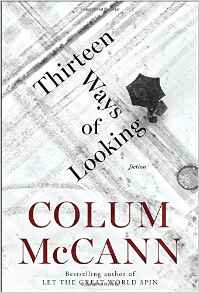
Reading Thirteen Ways of Looking by Colum McCann, yielded many such moments. When a person can write in a way that barely seems mortal, it can send my spirit soaring. Looking ahead, I am envisioning sailing with our son on Lake Coeur d’ Alene this summer. There will be a moment. I know it. The wind will grab the sails, and we will look at each other and laugh knowing that we are having an absolute blast out on the water. I also look forward to rafting, swimming, kayaking and boating down to dinner at Conklin’s Resort, and dancing under the stars.
Will I be sad, will I be angry, will I be depressed and discouraged? Yes. Will it matter? No.
It was in the seventh grade when I took this poem by Sara Teasdale to heart. It is called Barter.
Life has loveliness to sell,
All beautiful and splendid things,
Blue waves whitened on a cliff,
Soaring fire that sways and sings,
And children’s faces looking up
Holding wonder in a cup.
Life has loveliness to sell,
Music like a curve of gold,
Scent of pine trees in the rain,
Eyes that love you, arms that hold,
And for your spirit’s still delight,
Holy thoughts that star the night.
Spend all you have for loveliness,
Buy it and never count the cost;
For one white singing hour of peace
Count many a year of strife well lost,
And for a breath of ecstasy
Give all you have been, or could be.
I will read, I will write, I will study, I will spend time with old friends and new, I will laugh until I cry, I will eat good food, and I will get stronger with each passing day. I will devote myself to serving others. When bliss comes along, I will be ready. It will be duly noted.
As far back as my recorded resolutions state, I have begun each new year of my adult life with these two words: lose weight. What is different this year? I would still like to continue my weight loss journey, but that is not the leading resolution. Why not?
Bliss is not something one bumps into by accident. It is also not something one can micro manage or plan for entirely. What is is exactly? Where do I find it? Where does it abound? I would say Idaho. Windy Bay, Lake Coeur d’ Alene; it can be found right out my door. Communing with nature on a daily basis is the first step. Yet there is a difference between simple enjoyment and bliss. Bliss is defined as supreme happiness.
All guilt aside, Protestant work ethic and Calvinistic upbringing urging me to discard these thoughts in favor of everyday nose- to- the- grindstone good works, I can say that I will keep on with those traditions. Since I know that bliss is fleeting and short-lived, I do not need to fear going down the drain over seeking moments of profound joy. I can reconcile these two concepts by acknowledging that I am in training. For this to occur everything needs to be in place.
I want to be in really good shape. To this end, my ballet, yoga, and pilates program of my invention are essential. I need to be strong enough to ski with my husband who is a wonder. Yesterday, Silver Mountain was spectacularly beautiful. While cross-country skiing, breaking trail on a quiet, wooded road, with the sun glistening and a massive eagle soaring overhead, it happened. I was awestruck. My jaw drops in such moments.

Reading Thirteen Ways of Looking by Colum McCann, yielded many such moments. When a person can write in a way that barely seems mortal, it can send my spirit soaring. Looking ahead, I am envisioning sailing with our son on Lake Coeur d’ Alene this summer. There will be a moment. I know it. The wind will grab the sails, and we will look at each other and laugh knowing that we are having an absolute blast out on the water. I also look forward to rafting, swimming, kayaking and boating down to dinner at Conklin’s Resort, and dancing under the stars.
Will I be sad, will I be angry, will I be depressed and discouraged? Yes. Will it matter? No.
It was in the seventh grade when I took this poem by Sara Teasdale to heart. It is called Barter.
Life has loveliness to sell,
All beautiful and splendid things,
Blue waves whitened on a cliff,
Soaring fire that sways and sings,
And children’s faces looking up
Holding wonder in a cup.
Life has loveliness to sell,
Music like a curve of gold,
Scent of pine trees in the rain,
Eyes that love you, arms that hold,
And for your spirit’s still delight,
Holy thoughts that star the night.
Spend all you have for loveliness,
Buy it and never count the cost;
For one white singing hour of peace
Count many a year of strife well lost,
And for a breath of ecstasy
Give all you have been, or could be.
I will read, I will write, I will study, I will spend time with old friends and new, I will laugh until I cry, I will eat good food, and I will get stronger with each passing day. I will devote myself to serving others. When bliss comes along, I will be ready. It will be duly noted.
Thoughts for Thanksgiving
What happens when you are interested in a particular period in time? If you like to read, you will be drawn to books about that era. When I was writing My American Eden, I was tasked with researching Colonial America between the years of 1635-1660. It began when I found a tidbit in a history book about a woman who walked into Boston with her shroud in hand. She walked to the hanging tree twice, had the noose around her neck twice, and her face covered with her Pastor’s handkerchief twice. A last-minute reprieve by the Governor spared her the first time: the second resulted in death. This story struck me as one that every American should know. Because a law was passed banishing Quakers on pain of death, Mary Dyer challenged it with her life. As I began researching the event, I quickly realized that history is far from simple.
I found that perspectives differed depending on the author. Then something else came to light. The story tended to change over time. Quaker historians had one perspective, British authors had another, and then American academia added more confusion to the mix. I began to wonder if history is based on myth or fact and wondered how to find the truth. Official court documents, dates and times, all came up with discrepancies. Initially, I was obsessed with every detail. My first draft ballooned to eight hundred pages. When I learned that Mary Dyer traveled back to England and spent seven years there, I had to accept the challenge of understanding the English civil war. The Puritans and the Roundheads, the rise of Oliver Cromwell, and his destruction of Parliament were vague recollections from high school. I turned to my favorite historian Sir Winston Churchill. It was his description of a rising merchant class gaining sufficient power to challenge the established ruling class that piqued my interest. The more deeply I delved into the conflict, the more understanding I gained of what unfolded decades, and then centuries later. I learned of that the roots of the American Civil War stretched back to the events of the 1650s. One side, the Royalists, eventually gravitated to Virginia and the southern United States while the Puritans sailed to Boston. The events in New England also had an effect on the American Revolution and the founding fathers. Mary Dyer’s protests did not go unheeded. When Charles II was restored to the throne in 1660, he immediately passed a law forbidding such discrimination.
As we watch history unfold, try as we might, it is often difficult to find the truth. When asked if history would be kind to him, Winston Churchill replied that it would indeed because he intended to write it. As a child growing up in a military family in the post-war fifties and sixties, the shadow of war hung over the conversations by the adults. Watching the first reports of the news from Dallas, fifty-two years ago today, I had nothing but questions. At that point in time, I was obsessed with the Nancy Drew series. Even in the midst of the emotional wallop that hit us all regarding the assassination of the President, I sensed a murder mystery. People crave a simple explanation, but I feel we must be sleuths. What could be murkier than the events of November 22, 1963? One book leads to another; facts are disputed, and some facts are indisputable. The deeper one delves, the more confusion one is likely to find until at last the truth emerges. Should we accept the fact that we will never know? I have never thought so. The Unspeakable by James W. Douglass and The Devil’s Chessboard, by David Talbot have shed new light. Both books are thoroughly researched and beautifully written.
The final paragraph of the speech President John F. Kennedy was to deliver in Dallas on Nov. 22, 1963:
We in this country, in this generation, are — by destiny rather than choice — the watchmen on the walls of world freedom. We ask, therefore, that we may be worthy of our power and responsibility — that we may exercise our strength with wisdom and restraint — and that we may achieve in our time and for all time the ancient vision of “peace on earth, good will toward men.” That must always be our goal — and the righteousness of our cause must always underlie our strength. For as was written long ago: “except the Lord keep the city, the watchman waketh but in vain.”
SOURCE: John F. Kennedy Presidential Library and Museum
Two statues in front of the Massachusetts State House: One by Sylvia Shaw Judson depicts Mary Dyer, and the other is Isabel Mcllvain’s President Kennedy.
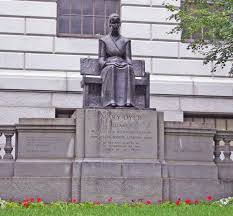
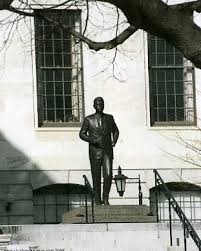
This week we will gather with friends and family remembering those first families who came to the New World seeking freedom. Some of us will pray for those around the globe who are fleeing terrible circumstances and conflict. Hopefully, we will all give thanks for the simple things: a roof over our heads, a warm house and a bounteous feast on the table. I hope we will all remember to cherish freedom too.
The Food of Love
My last day of high school involved an exam. The subject was
geography. My teacher, Winifred Prestwich, walked down the aisle in the
prayer hall where desks had been placed, patted my shoulder, and wished
me luck. She called me by my sister’s name, Mary. It didn’t matter. I
was used to it. The fact that my sister graduated years prior made no
difference. Miss Prestwich liked her enormously, so in calling me by her
name, it felt like a token of affection.
I supposed I trembled a little as I read the exam questions. My school, Havergal College for Young Ladies, was famous for its tough standards. The packet was a fairly thick one. As I looked through it, I found a blank street map of Paris. We were to name as many streets and landmarks as possible. Each accurate answer yielded a point, and the map was worth fifty percent of the grade. It was never mentioned as a possibility in class. We had spent a few weeks learning about the city planning, but we expected an essay question on that topic. I filled in the map first. By the time I finished, I had to race through the other questions. When I heard the words, “Pens down,” my high school years came to a close. After spending countless hours complaining about the uselessness of what we were learning, and pontificating to all in sundry about what I would have rather been studying, I now had to concede that Miss Prestwich had given us a very practical application of knowledge. I feel at home in Paris. I would live there in a heartbeat if I could. I can always find my way around.

When I heard of the recent attacks, like so many others, I felt a great kinship with the people who live in my favorite city. It is hard to quantify places, and I am never a fan of ranking everything in sight, but in my mind Paris is the at the top of the pinnacle. My love of beauty is satisfied at every turn. The care taken with every morsel of food is so impressive that I feel as if I can live on the inspiration for years. I am a self-confessed Francophile. Isn’t anything one does, anything at all, worth doing well? That is what I admire about la belle France. The streets, washed every morning with a small flood that swooshes through, allows shopkeepers to sweep and scrub their sidewalks leaving them fresh and clean. The bakers are up in the dark making the daily bread. Working your way through a loaf of sliced bread from start to finish is unheard of in France. To everything, there is a delicate balance.
Now this: Violence. Disruption. Aggression. Brutality. Hideous darkness. What is to be done?
We cannot stop being hospitable. After 9/11, I thought of all the wonderful raucous times my family enjoyed in New York. The nights at Madison Square Garden, the restaurants, the hotels, and the famous cab drivers; the city vowed to carry on being New Yorkers. So I pray for Paris. I pray for it to remain as the City of Light, and I expect to visit it again sometime soon. I hope the cafes are never forced to close their doors again. Church bells rang throughout the city on Sunday. U2 had to cancel their concert. As reported in a radio interview with Irish D.J. Dave Fanning, Bono said, “ I think music is important. I think U2 has a role to play, and I can’t wait till we get back to Paris and play.”
“If music be the food of love, play on.” Shakespeare: Twelfth Night, Act One, Scene One.
I supposed I trembled a little as I read the exam questions. My school, Havergal College for Young Ladies, was famous for its tough standards. The packet was a fairly thick one. As I looked through it, I found a blank street map of Paris. We were to name as many streets and landmarks as possible. Each accurate answer yielded a point, and the map was worth fifty percent of the grade. It was never mentioned as a possibility in class. We had spent a few weeks learning about the city planning, but we expected an essay question on that topic. I filled in the map first. By the time I finished, I had to race through the other questions. When I heard the words, “Pens down,” my high school years came to a close. After spending countless hours complaining about the uselessness of what we were learning, and pontificating to all in sundry about what I would have rather been studying, I now had to concede that Miss Prestwich had given us a very practical application of knowledge. I feel at home in Paris. I would live there in a heartbeat if I could. I can always find my way around.

When I heard of the recent attacks, like so many others, I felt a great kinship with the people who live in my favorite city. It is hard to quantify places, and I am never a fan of ranking everything in sight, but in my mind Paris is the at the top of the pinnacle. My love of beauty is satisfied at every turn. The care taken with every morsel of food is so impressive that I feel as if I can live on the inspiration for years. I am a self-confessed Francophile. Isn’t anything one does, anything at all, worth doing well? That is what I admire about la belle France. The streets, washed every morning with a small flood that swooshes through, allows shopkeepers to sweep and scrub their sidewalks leaving them fresh and clean. The bakers are up in the dark making the daily bread. Working your way through a loaf of sliced bread from start to finish is unheard of in France. To everything, there is a delicate balance.
Now this: Violence. Disruption. Aggression. Brutality. Hideous darkness. What is to be done?
We cannot stop being hospitable. After 9/11, I thought of all the wonderful raucous times my family enjoyed in New York. The nights at Madison Square Garden, the restaurants, the hotels, and the famous cab drivers; the city vowed to carry on being New Yorkers. So I pray for Paris. I pray for it to remain as the City of Light, and I expect to visit it again sometime soon. I hope the cafes are never forced to close their doors again. Church bells rang throughout the city on Sunday. U2 had to cancel their concert. As reported in a radio interview with Irish D.J. Dave Fanning, Bono said, “ I think music is important. I think U2 has a role to play, and I can’t wait till we get back to Paris and play.”
“If music be the food of love, play on.” Shakespeare: Twelfth Night, Act One, Scene One.
Good Books for Damp Days
It is raining and damp on Windy Bay today. The lake is still and apart from the odd shot fired now and again, we hear almost nothing, save the delicious sound of raindrops falling on a metal roof. After a long walk and discussion about driving to town to see a movie, we opted, as we so often do, for a cozy afternoon with our books. My goal was to finish this month’s selection for The Best Food Ever Book Club.
If we had first come to see Elena Greco and Lila Cerullo, the two main characters of Elena Ferrante’s My Brilliant Friend, as young women, it would have been our loss. By describing the friendship of two little girls with all of its inherent passion and intensity we, as readers, never lose sight of those children. This device, whether intentional or not, gives the book much of its power.
Set in a poor neighborhood on the outskirts of Naples, we learn of a society struggling to cope with post-war conditions in Italy. As the girls observe events in the neighborhood, we see the volatile and frightening conditions in which they live. Girls are neither highly valued nor are kept very safe. It is this anxiety that creates a never-ending tension in the book.
As in most tales of girlhood friendship, there is a divergence in their respected paths. One will be continuing her education, and the other will have to work in the family shoe repair shop. As fate would have it, the girl with the greatest ability is the one who is stymied.
Knowing the rivalries, the competition and the gut- wrenching power these emotions have with both girls, the split is painful to imagine. Perhaps readers with a memory of such times and similar decisions made regarding the fate of sisters and neighbors, feel this more keenly. I will wait until the Best Food Ever Book Club discusses this work to see if anyone agrees with me. Perhaps I will share a personal story. It happened in a similar fashion. Sent to a private school, and then to compound matters, moving to a new house, drove a wedge between my best friend from childhood and me. She went on to new friends as did I, and we were not able to maintain our former bond.
Even if the parting of the ways had not been centered around school, I was reminded of other factors that seem to break those incredible ties of friendship one feels in elementary school, and how something along the way always seems to come between cherished friends. If it isn’t school, it is a boyfriend, or lack thereof, or some change that often splits them apart. After reading L.M. Montgomery’s Anne of Green Gables so many times over, and at least once per decade throughout the course of my life, my last go-round brought me to the understanding of the diverging paths between Anne and her friend Diana. With mouths to feed and a farm to run, Diana’s father decrees that she will not go on to further her education while Anne receives a scholarship. There is no remedy, no matter what the intention. Neither girl will be the same.
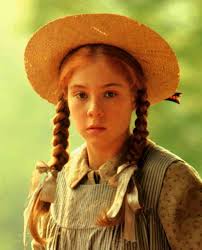
Elena Ferrante does a brilliant job of zeroing in on the truth of these girl’s circumstances. Neither one is safe. Not entirely, and the women who should be protecting them seem unobservant, distant, and oblivious. For how many centuries were girls and women told to accept their lot in life without complaint. For how long did we have the merest of choices over our destinies? While I would not call My Brilliant Friend a feminist novel, it certainly stirred those emotions.
My Brilliant Friend is
the first in a series of four books. Whether I continue, or leave off
here remains in the hands of my book club. Knowing some have already
galloped on through, I expect to hear some heavy lobbying.
Fill Your Lungs With Language
Colum McCann’s Letter to a Young Writer
In the 24th in a series of posts on 2015 books entered for The Story Prize, Colum McCann, author of Thirteen Ways of Looking (Random House), shares some advice.

Do the things that do not compute. Be earnest. Be devoted. Be subversive of ease. Read aloud. Risk yourself. Do not be afraid of sentiment even when others call it sentimentality. Be ready to get ripped to pieces: It happens. Permit yourself anger. Fail. Take pause. Accept the rejections. Be vivified by collapse. Try resuscitation. Have wonder. Bear your portion of the world. Find a reader you trust. Trust them back. Be a student, not a teacher, even when you teach. Don’t bullshit yourself. If you believe the good reviews, you must believe the bad. Still, don’t hammer yourself. Do not allow your heart to harden. Face it, the cynics have better one-liners than we do. Take heart: they can never finish their stories. Have trust in the staying power of what is good. Enjoy difficulty. Embrace mystery. Find the universal in the local. Put your faith in language—character will follow and plot, too, will eventually emerge. Push yourself further. Do not tread water. It is possible to survive that way, but impossible to write. Transcend the personal. Prove that you are alive. We get our voice from the voices of others. Read promiscuously. Imitate. Become your own voice. Sing. Write about that which you want to know. Better still, write towards that which you don’t know. The best work comes from outside yourself. Only then will it reach within. Restore what has been devalued by others. Write beyond despair. Make justice from reality. Make vision from the dark. The considered grief is so much better than the unconsidered. Be suspicious of that which gives you too much consolation. Hope and belief and faith will fail you often. So what? Share your rage. Resist. Denounce. Have stamina. Have courage. Have perseverance. The quiet lines matter as much as those which make noise. Trust your blue pen, but don’t forget the red one. Allow your fear. Don’t be didactic. Make an argument for the imagined. Begin with doubt. Be an explorer, not a tourist. Go somewhere nobody else has gone, preferably towards beauty, hard beauty. Fight for repair. Believe in detail. Unique your language. A story begins long before its first word. It ends long after its last. Don’t panic. Trust your reader. Reveal a truth that isn’t yet there. At the same time, entertain. Satisfy the appetite for seriousness and joy. Dilate your nostrils. Fill your lungs with language. A lot can be taken from you—even your life—but not your stories about your life. So this, then, is a word, not without love, to a young writer: Write.


Do the things that do not compute. Be earnest. Be devoted. Be subversive of ease. Read aloud. Risk yourself. Do not be afraid of sentiment even when others call it sentimentality. Be ready to get ripped to pieces: It happens. Permit yourself anger. Fail. Take pause. Accept the rejections. Be vivified by collapse. Try resuscitation. Have wonder. Bear your portion of the world. Find a reader you trust. Trust them back. Be a student, not a teacher, even when you teach. Don’t bullshit yourself. If you believe the good reviews, you must believe the bad. Still, don’t hammer yourself. Do not allow your heart to harden. Face it, the cynics have better one-liners than we do. Take heart: they can never finish their stories. Have trust in the staying power of what is good. Enjoy difficulty. Embrace mystery. Find the universal in the local. Put your faith in language—character will follow and plot, too, will eventually emerge. Push yourself further. Do not tread water. It is possible to survive that way, but impossible to write. Transcend the personal. Prove that you are alive. We get our voice from the voices of others. Read promiscuously. Imitate. Become your own voice. Sing. Write about that which you want to know. Better still, write towards that which you don’t know. The best work comes from outside yourself. Only then will it reach within. Restore what has been devalued by others. Write beyond despair. Make justice from reality. Make vision from the dark. The considered grief is so much better than the unconsidered. Be suspicious of that which gives you too much consolation. Hope and belief and faith will fail you often. So what? Share your rage. Resist. Denounce. Have stamina. Have courage. Have perseverance. The quiet lines matter as much as those which make noise. Trust your blue pen, but don’t forget the red one. Allow your fear. Don’t be didactic. Make an argument for the imagined. Begin with doubt. Be an explorer, not a tourist. Go somewhere nobody else has gone, preferably towards beauty, hard beauty. Fight for repair. Believe in detail. Unique your language. A story begins long before its first word. It ends long after its last. Don’t panic. Trust your reader. Reveal a truth that isn’t yet there. At the same time, entertain. Satisfy the appetite for seriousness and joy. Dilate your nostrils. Fill your lungs with language. A lot can be taken from you—even your life—but not your stories about your life. So this, then, is a word, not without love, to a young writer: Write.

Serve the Work
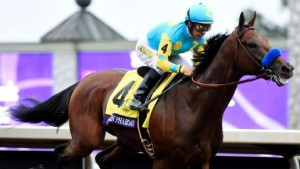 At
a recent luncheon with fellow writers, the conversation turned to the
nature of artistic temperament. We have all read articles about the
connection between Genius and mental illness. We have also read and
heard accounts of profoundly nasty moves made by some who are regarded
as innovative, brilliant, immortal and gifted. What is the connection?
At
a recent luncheon with fellow writers, the conversation turned to the
nature of artistic temperament. We have all read articles about the
connection between Genius and mental illness. We have also read and
heard accounts of profoundly nasty moves made by some who are regarded
as innovative, brilliant, immortal and gifted. What is the connection?The nature of mania can be what is often called a brainstorm. With all circuits firing at breakneck speed, some have harnessed this heightened awareness and let their paint brush or their typewriters or quill pens, take record some of these rapid fire thoughts.
Any state or mood of increased consciousness would never yield great work in and of itself. The initial flow may be prolific and intense, but it could also be a great mess, yielding nothing of use to anyone. The ride on the back of a bucking bronco may be thrilling, but it is altogether too short. So a second talent is needed; one that allows for the discipline of picking oneself up once the inevitable crash seems to follow. Through those days, slow, painstaking effort and focus is needed to add layers and subtract all that is superfluous to produce a beautifully crafted work of art.
What is the artistic temperament? Lord Byron wrote: “We of the craft are all crazy…. all are more or less touched.” Is it a medical condition, a fine madness, or is it something brought on by the nature of the creative process? While most would feel the former is the most likely, I am tending more towards the latter. The forces of the world around us, seem to conspire in every shape and form to pull us away from the solitary work and into what Virginia Woolf described as the “tramp and trudge of life.”
Who lives on a street where the neighbors would discourage attendance at a potluck party in favor solitary confinement in a studio? Is the excessive sensitivity and irritability, as one definition stated, a by-product of what is required to keep the galloping herd at bay? This is what I wonder.
The romantic myth of the suffering artist and its link to creativity as a kind of requirement for genius is to some extent, a bit overblown. Plenty of successful working artists and writers live a steady and rather quiet life, where family duties are wedded to productivity and acclaim. It is not necessary to have a train wreck of personal relationships, followed by an early death in a sad hotel room, to be declared a genius. It is often the perception.
Part of the conflict and tension one reads about and is attributed to the artistic temperament, could also be tied to the anxiety inherent in wanting recognition, acclaim and financial security. If it constantly eludes a person who is truly original, sticks their neck out in dramatic fashion, takes huge risks and displays a lack of restraint to do so, and goes completely unrecognized in their lifetime, would not that fear and uncertainty contribute to a less compliant nature? Possibly.
I saw true artistry this weekend. A horse and a figure skater put me right over the moon. American Pharoah winning his last race in the The Breeder’s Cup, and Patrick Chan’s flawless performance in SCI showed us what devotion, hard work, and focus can accomplish.
An Inspiring Leader Takes the Stage
Justin Trudeau, now Prime Minister
of Canada, found inspiration on an early morning paddle on the Bow River
in Calgary before the debate.

I am filled with hope today. Why? I feel inspired.
What exactly is inspiration? I started to think about this when an old friend signed a note to me by saying, stay inspired. It is a daily quest, to be sure. Without going out and looking for it, I can come up empty. The blank page, now the white screen, gets the better of me, and no work gets done on either my novel in progress, Four Stanley Cups and a Funeral, or on my website. When this happens, I have not let anyone down, save myself. However, without self-respect where are we?
Inspiration seems to be gaining in popularity if you look at my Facebook page. Twitter runs hot and cold, but there are no shortages of inspirational tidbits there too. There are days when no platitudes seem to work, and I have to try harder. Others, like today, see me out in the thick woods marveling at the fall colors and circling ravens of Windy Bay. Why is there a spring in my step? Good news and glad tidings are sweeping down like a clean, north wind from Canada.
Whether you missed the election drama, or followed it day by day, last night, a victory occurred for a political party with a dynamic young leader. However, that is not all that took place. A contentious battle veered down the dark alley of the politics of discrimination. Divide and conquer was the failed strategy of the ruling, Conservative Party. Canadians rejected it soundly. That gives me hope.

We all know better. We all had grandmothers
who taught us good manners. We all had grandfathers who introduced us
to right and wrong. We know what is called hate speech when we hear it.
So why do we keep sinking into this abyss? It is the advice of political
strategists. They feel it works. I am hopeful today that some may feel
that it does not. It could backfire. It could come back to bite you
My grandfather told me that his father raised him on one simple statement from the Bible: “Yea as you sew, so shall ye reap.”
It is that simple. The man dispensing this advice was a new-age poet and journalist about one hundred years ahead of his time. He taught yoga classes and was a vegetarian. He believed in peace, and he worked to move his country beyond narrow-minded Victorian divisions to a model “free from discrimination of race, class, color or creed.” John Oliver said that the pervasive feeling in Canada of an election lasting seventy-eight days being way too long, was “absolutely adorable.” In this country, we still have a long, long way to go. What becomes tedious is not the exchange of ideas, it is what my grandmother would have called the unpleasantness. Do we really need this as part of the fabric of democracy, or is it rather a stain on our collective soul? Should we not look to leaders who provide inspiration? I am not all that interested in a person’s fears. Why would I even want to hear about them? Why should I be afraid? Why should I cast a vote because of my fears?
I looked up antonyms for the word inspire: Bore, deaden, depress,
discourage, dishearten, and here is the best one of all- lull. Lull into
a stupor comes to mind.It is that simple. The man dispensing this advice was a new-age poet and journalist about one hundred years ahead of his time. He taught yoga classes and was a vegetarian. He believed in peace, and he worked to move his country beyond narrow-minded Victorian divisions to a model “free from discrimination of race, class, color or creed.” John Oliver said that the pervasive feeling in Canada of an election lasting seventy-eight days being way too long, was “absolutely adorable.” In this country, we still have a long, long way to go. What becomes tedious is not the exchange of ideas, it is what my grandmother would have called the unpleasantness. Do we really need this as part of the fabric of democracy, or is it rather a stain on our collective soul? Should we not look to leaders who provide inspiration? I am not all that interested in a person’s fears. Why would I even want to hear about them? Why should I be afraid? Why should I cast a vote because of my fears?
According to Webster’s, inspiration drives us to create. That is why it is worth seeking. That is why it is a hallmark of true leadership.
The sky is a bright blue today. The sun is glistening in the bay. The leaves are shimmering on the trees. Inspiration is everywhere. When our time to vote comes at last, I want to feel a sense of hope. I want to feel as if we have turned a corner. I want to feel that we are serving the better angels of our nature. We still have a long way to go. It will be a tough portage.
Enduring Love
Just in time to take the boats out of the water, Roy MacGregor’s Canoe Country: The Making of Canada, arrived on my doorstep. The glorious fall we have enjoyed on Windy Bay is more lovely than ever. Rain, sweet, heavenly rain, has made our parched woods practically sing with joy. Sitting on our deck with the last rays of summer keeping me warm, I was deliriously happy reading one of my favorite authors. Since there is so much to do this time of year in the garden, I had to ration my reading time, but the book got the better of me, and I took to picking it up at every break. Thanks to Roy MacGregor, my Christmas shopping is going to be a snap. Every canoe lover on my list will unwrap this treasure. Books written about canoes are few and far between, but we tend to see the same ones in homes of our friends.
The book, infused with passion, also carries a wealth of historical information.
From the back cover:
“The canoe made Canada. No canoe, no exploration of this second-largest country on earth. No canoe, no fur trade to open up the colony-then-country to commerce and settlement. No dugout, no birchbark canoe, no kayak, no umiak, then perhaps no survival for the for the various Aboriginal peoples who first inhabited this largely inhospitable and often frozen territory.”
Since I was lucky enough to spend my summers canoeing, and traveling on long canoe trips, I can attest to how utterly bonded the traveler becomes with his craft. When you think of the simplicity of the vessel, the adaptability of the voyageur, the mastery of the skills required to endure the journey, it is a wonder. The canoe is much more than a means to an end; it is a thing of inestimable beauty.
MacGregor writes of the transition from birchbark to cedar strip with chilling accuracy. It was gratifying to me to read that his research was thorough, and all credit due was given to David Thompson. As in all inventions, necessity brought us this development. As Thompson traveled west, he found birchbark to be scarce. Hence the cedar strip which while disputed seems to have been created out here in the northwest.
From Page 194:
“Thompson’s assignment from his superiors at the North West Trading Company, fourteen years later, was to cross the Continental Divide and establish trade with native tribes west of the Rockies. He and his party passed the winter of 1807 to 1808 at “Kootenae House,” the trading post they had built by a creek that ran into the Columbia.”
From Thompson’s journals, edited by Sean T. Peake and featured on page 204:
“We had to turn out thoughts to some other material, and Cedar wood being the lightest and most pliable for a canoe, we split out thin boards of Cedar wood of about six inches in breadth and builded a Canoe of twenty-five feet in length by fifty inches in breadth, of the same form of a common Canoe, which proved to be equally light and much stronger than Birch Rind.”
Beyond the practical and natural, there is also something mystical about a journey by canoe. I am not making preposterous claims alone here; I have heard this voiced so many times and have read enough accounts to consider it a common experience. It begins as a child when you set off in high spirits and boundless enthusiasm only to hit a wall in about say, twenty minutes, where you suddenly feel that old, are we there yet, impatience. There is a bit of a breakdown that occurs. You can’t get out, you can’t get comfortable, your knees hurt, you are hungry, and you are thirsty, and we have to do this for the next eight hours? One has to learn patience, and one has to learn to be calm, and one has to pass the time in silly conversations or find a song where everyone knows the words, or surely you think you will run mad. After time, the canoe becomes quiet. Words are not needed now, and only the next bend, the next portage or thoughts of a warm fire and a good meal are all that seem to be on your mind. What happened to all the cares, the concerns, the endless thought patterns? They start to slip away, and the contemplation of whirlpools around the dip of your paddle take center stage.
From Page 93 where the journals of Susanna Moodie are quoted:
“She claims to have felt a magic spell upon our spirits. Every object was new to us. We felt as if we were the first discoverers of every beautiful flower and stately tree that attracted our attention, and we gave names to fantastic rocks and fairy isles.”
What used to transport me into the stratosphere of my highly excitable teen years was the knowledge that I had everything I needed. By the second week of canoeing, I did not want to return to civilization. I reveled in the simplicity of our world, and I could not get enough of exploration. I have been a happy wanderer, and I hope Canadians and Americans who love the outdoors will cherish this book.
Pictured below is the author on a canoe trip in Ontario, Canada.
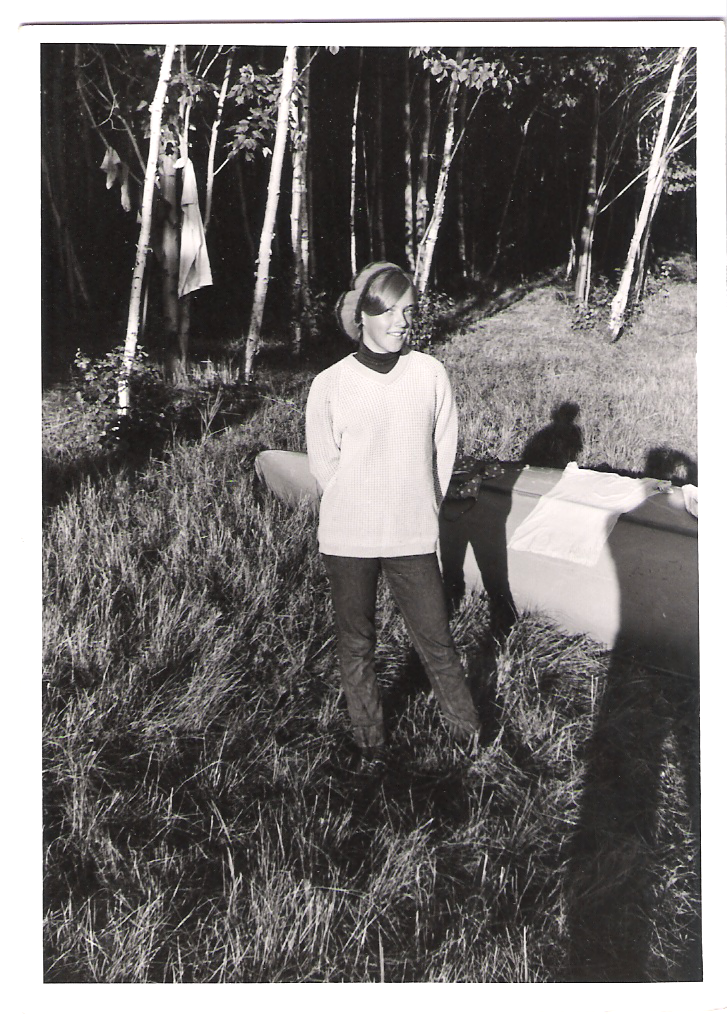

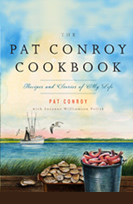
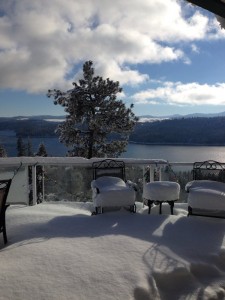
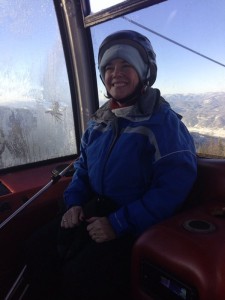



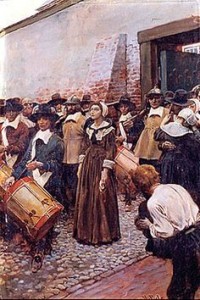
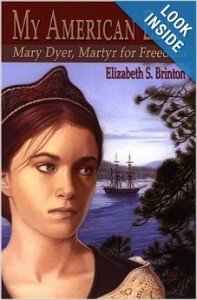
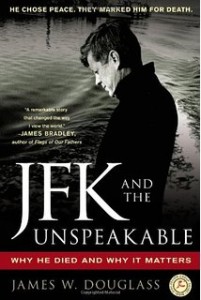

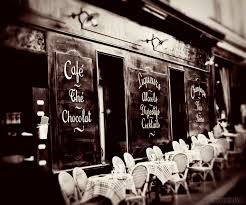
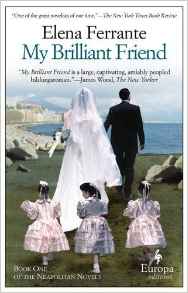
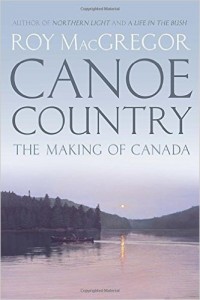
No comments:
Post a Comment